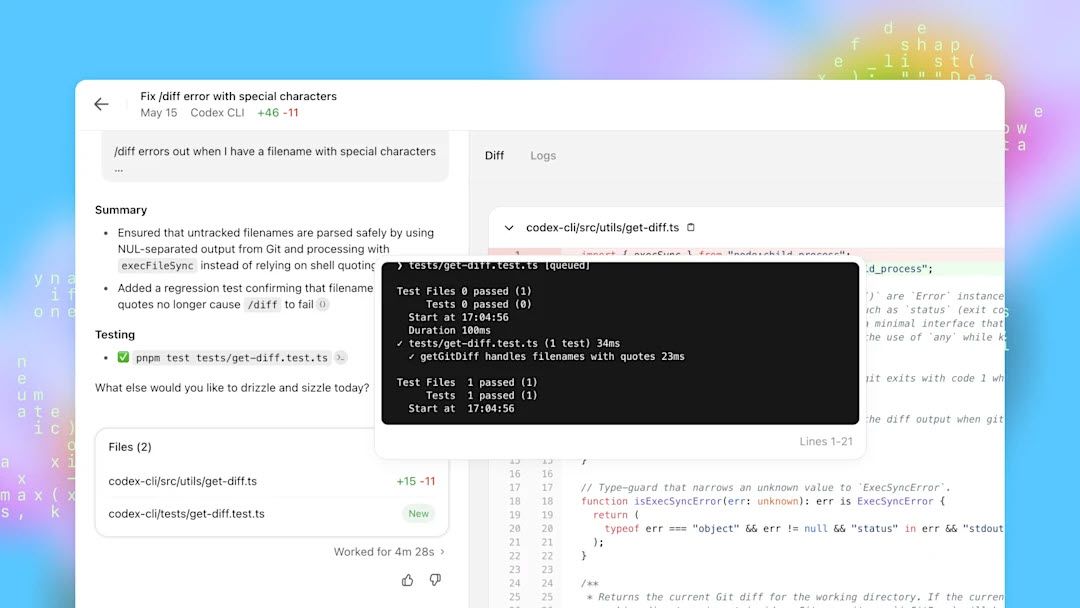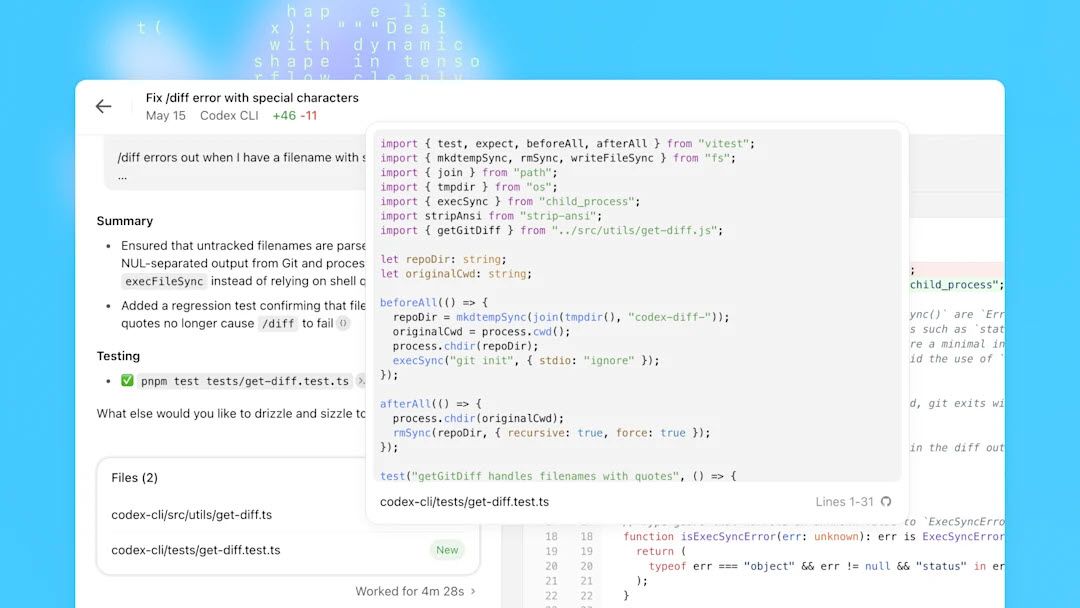ChatGPT does a pretty good job of generating code from text prompts and breaking it down. Now, OpenAI has added a new coding agent to ChatGPT, and it’s not just programmers who should be excited
ChatGPT’s Codex Takes AI Programming to the Next Level
OpenAI is launching a research preview of Codex, a “cloud-based software engineering agent.” The feature is powered by codex-1, a version of the OpenAI o3 model optimized for coding and software engineering tasks. Codex-1 is also trained to align its output closely with “human coding preferences and standards.”
You can find the feature in the ChatGPT sidebar if you’re a ChatGPT Pro, Enterprise, or Team user, with Plus and Edu users getting it soon. Once open, you can either assign it a coding task by typing a prompt and entering the Code button or ask questions about your codebase using the Ask button. You’ll find information on Codex’s task list and progress below the prompt bar.
This new agent can perform multiple tasks on an existing codebase, like adding new features, fixing bugs, and answering any questions you might have. Each task runs in a separate isolated environment, preloaded with your codebase or repository. Codex can read and edit files as well.
OpenAI’s announcement claims that the agent will take anywhere between one to 30 minutes to complete an assigned task, depending on the complexity of the task. You can monitor its progress in real-time or even run multiple tasks simultaneously, all while using your browser and computer as usual.
While ChatGPT can help you generate code and even provide entire projects that you can download and test, it doesn’t work well with software repositories and codebases. Codex’s abilities to with within typical software engineering infrastructures means it’s a lot more useful compared to vanilla ChatGPT to both companies and individuals who maintain multiple projects in repositories.
Codex produces cleaner code compared to ChatGPT, which is ready for human review and integration into workflows or codebases. It also runs tests until it passes all the given test cases and conditions. Once a task is completed, Codex will commit the changes to its environment and provide “verifiable evidence of its actions through citations of terminal logs and test outputs.”
Why Is Codex a Big Deal?
Codex is a big deal for professionals in any industry. You can write Excel macros, automate reports, batch edit files, and do just about everything that would’ve required expertise in some programming or scripting language.
Sure, ChatGPT can generate code and scripts for you, but in my experience, it’s not reliable. You need to have relatively good knowledge of the programming language you’re working with and a general idea of code debugging. Codex, however, automatically checks its code and runs tests to ensure it works the way you want.
This might improve with ChatGPT’s new GPT-4.1 model, but it’s not a perfect solution. Knowing when to use which ChatGPT model can largely affect the output, so a model custom-made for coding will perform better than a more general-purpose model.
Of course, if you’re a programmer, Codex is massively helpful as it can integrate with your GitHub repositories and take care of repetitive tasks and test cases. This lets you develop and ship your app faster without getting caught up in maintenance, testing, and other tasks usually part of the software development process.






:max_bytes(150000):strip_icc()/command-prompts-57ed85a03df78c690fdd85eb.png?w=1174&resize=1174,862&ssl=1)


Leave a Comment
Your email address will not be published. Required fields are marked *